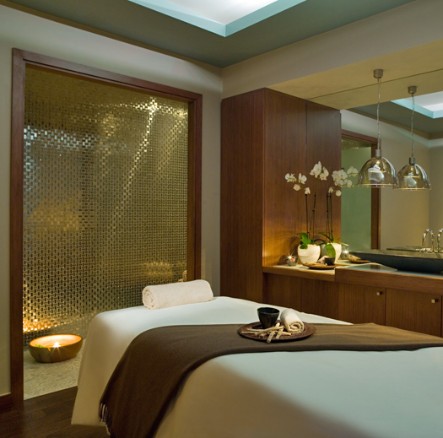Benefits of Thai

Thai massage has a number of health benefits and effects that actually work. A lot of people who learn to perform a Thai massage experience a completely different type of relaxation, one that's actually a state of mind change. This article will explore the benefits that Thai massage has on the human body.
First, there is the obvious physiological change with Thai massage. Thai massage is a blend of elements from Ayurvedic as well as traditional Chinese medicine. It is not like traditional Western massages which require you to lay down on a flat surface as the therapist is working on your muscles. Instead the therapist will massage the muscles and apply pressure to various pressure points while you sit still. Instead, Thai massage, like most other types of Thai massages, can be performed while in a sitting or standing in a standing or sitting position.
This improves blood circulation and flexibility. Thai massage therapy is well-known for its ability to relax muscles that can cause anxiety and pain. Many studies have demonstrated that Thai massage is helpful in relieving tension in the muscles. Therapists integrate Thai massage into their therapy sessions as a way to help clients manage ongoing tension and stress for example, chronic back pain. It has been demonstrated that massage therapy has the ability to reduce symptoms of cardiovascular diseases and reduce the ageing process.

A Thai massage is also beneficial in that it enhances flexibility. Numerous research studies have been conducted on this topic. In one study, researchers discovered that those who attended regular Thai massages had a significant reduction in muscular pain when compared with those who did nothing. Regular massages proved that people had less stiffness and discomfort due to osteoarthritis. It is interesting to note that those who were treated more frequently were less likely to feel discomfort in their lower backs or their knees.
A few Western researchers are researching the effects Thai massage has on mood and stress. One study found that college students who had been exposed to Thai massage regularly reported lower levels of stress in comparison to those who did not. The participants had lower levels of fatigue, and better quality sleep. Additionally, Thai massage has been proven to boost attention and memory. In one study, participants who underwent regular Thai massages showed greater capacity to remember things and to perform better on cognitive tasks than those who didn't. Studies have shown that regular Thai massage can prevent Alzheimer's from developing.
Researchers have also studied the impact of Thai massage on performance in athletics. It appears that the technique is beneficial, especially those who are experiencing higher degrees of pain and stiffness from overuse. For instance swimmers reported less pain and improved swimming performance after undergoing 6-weeks of Thai massage. According to some studies, Thai massage helped tennis players to increase their flexibility. After receiving an Thai massage golfers reported more efficient performance and less tolerance to pain. Incredibly, researchers discovered that those who competed in a triathlon in the outdoors experienced greater flexibility and reduced stiffness in their muscles after the session of Thai massage.
Another study looked at the impact of Thai massage on geriatric cancer patients. The participants in the four-day program of Thai Massage experienced increased muscle flexibility, lower back pain, better quality sleep, and less impairment in patients who had been receiving radiation or chemotherapy. Additionally, those in a cancer treatment program had more improvement in their pain management as well as improved overall health and well-being when they attended a 5-day program of Thai massage. Participants who engaged in yoga-like exercises experienced more range of motion and less pain. Participants in meditation-based breathing exercises saw only improvement in physical comfort as well as breathing control.
Thai Yoga is often called Thai Massage, according to studies. It has many of the same benefits as the more well-known yoga. However, many of the practitioners are not familiar with the traditional Thai massage techniques. They may also view it as an alternative form of yoga when they first learn about it. While practicing Thai massage, the person can relax and keep the body in specific poses for several minutes at a stretch, taking one repetition or a set of repetitions of each pose. The forms are based on yoga positions, but the purpose is to bring about an environment of perpetual relaxation. The person practicing doesn't need be active throughout the session, unlike in yoga.
